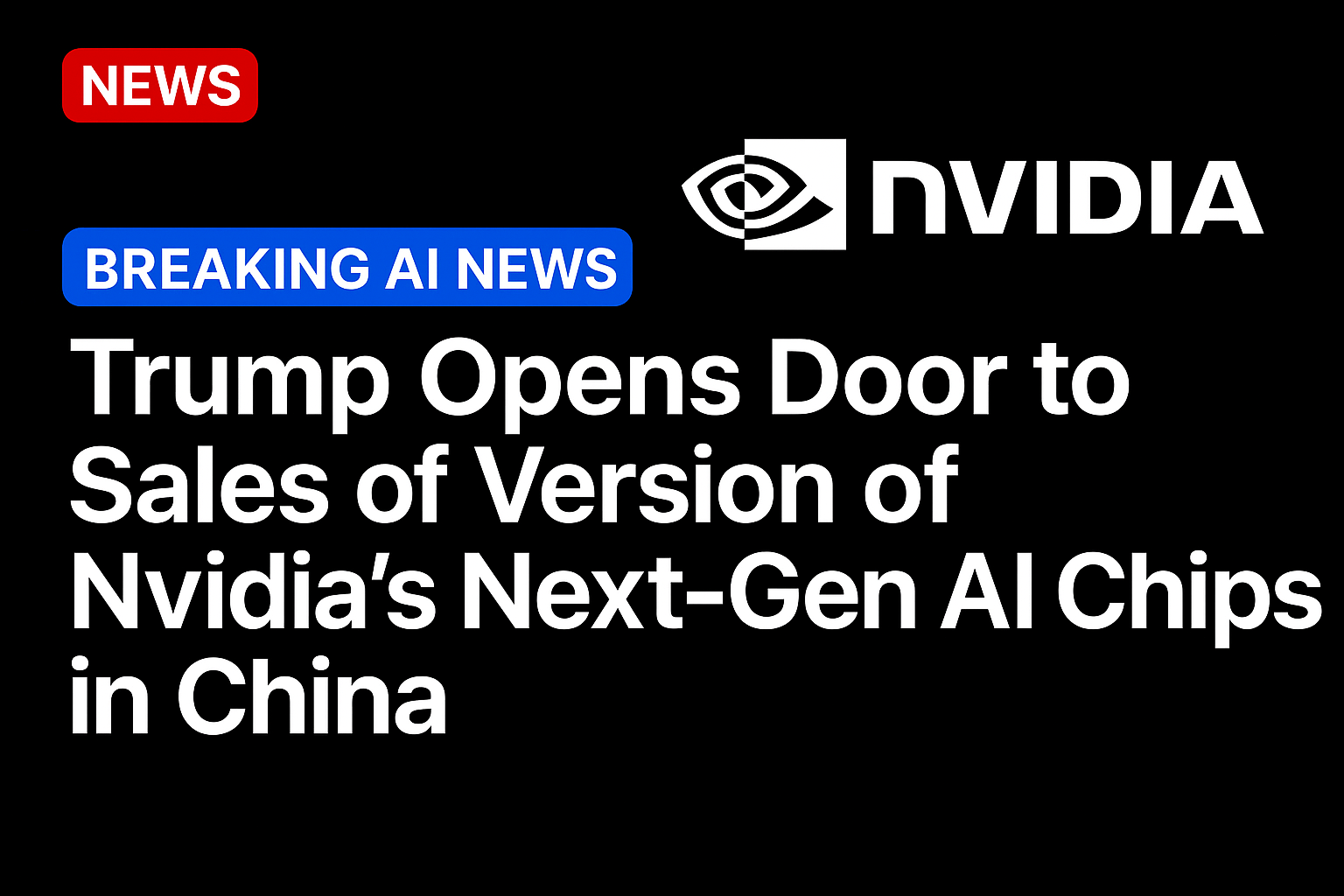U.S. President Donald Trump on Monday suggested he might allow Nvidia (NVDA.O), opens new tab to sell a scaled-down version of its next-generation advanced GPU chip in China, despite deep-seated fears in Washington that China could harness U.S. artificial intelligence capabilities to supercharge its military.
The move could open the door to China securing more advanced computing power from the U.S. even as the two countries battled for technology supremacy, critics said.
“Jensen (Huang, Nvidia CEO) also has the new chip, the Blackwell. A somewhat enhanced-in-a-negative-way Blackwell. In other words, take 30% to 50% off of it,” Trump told reporters in an apparent reference to slashing the chip’s computing power.
“I think he’s coming to see me again about that, but that will be an unenhanced version of the big one,” he added.
Earlier, the Trump administration confirmed an unprecedented deal with Nvidia and AMD (AMD.O), opens new tab to give the U.S. government 15% of revenue from sales of some advanced chips in China.
The move sent shivers across Washington, where China hawks of both parties have long sought to keep Beijing generations behind U.S. AI technology.
“Even with scaled-down versions of flagship Nvidia (chips), China could spend and buy enough of them to build world-leading, frontier-scale AI supercomputers,” said Saif Khan, former director of Technology and National Security at the White House National Security Council under former President Joe Biden, who heavily restricted U.S. AI chip exports abroad. “This could directly lead to China leapfrogging America in AI capabilities.”
Reuters in May reported that Nvidia was preparing a new chip for China that was a variant of its most recent state-of-the-art AI Blackwell chips at a significantly lower cost.
Nvidia has not disclosed the existence of the chip, or its capabilities compared with its U.S. offerings. But the flagship U.S. version of the Blackwell chip, which Nvidia unveiled in March, is up to 30 times faster than its predecessor.
Source: https://www.reuters.com/

